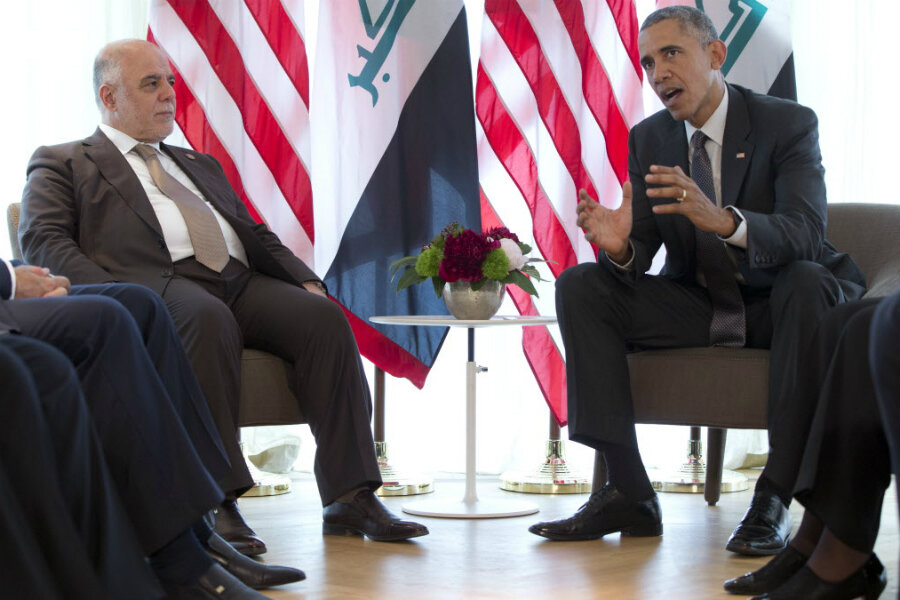Even if the US is sending troops in the hopes that trainers give the US more leverage to push the Iraqi government to reform, is this a logical and realistic aspiration, or is it a pipe dream?
If reconciliation among Iraq's Shiite and Sunni factions is the goal, that process "was always best when we were the mediators and helped them along," says retired Col. Peter Mansoor, former executive officer to former Gen. David Petraeus in Iraq.
To that end, Dr. Mansoor, now associate professor of military history at Ohio State University, argues that the US should do even more than training. US troops "have to embed [with Iraqi forces] and they have to fight" in the course of embedding with front-line Iraqi troops. "This is how we develop an army that's competent and, in the end, it's going to help the prime minister get control of parts of the society that lean sectarian."
But this view is part of widespread “fallacy” about Iraq, Scharre says. While US troops could potentially give the US more leverage to force Iraq to solve its sectarian problems, “in other cases it gives us less leverage, because it exposes us, in terms of physical risk to our troops.”
The more US troops on the ground, “the more we’re invested,” Scharre adds. “And getting out is a lot harder than getting in.”







